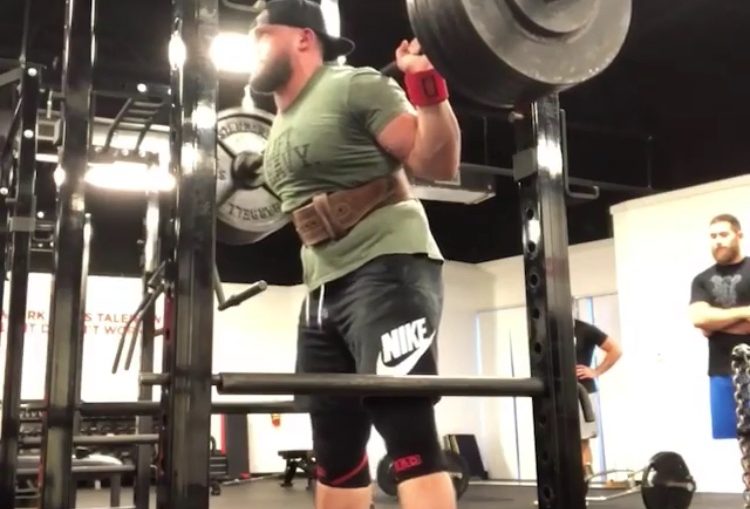Written by: Kevin Cann
Progressing a program is something that is a necessary part of getting stronger. However, I feel many athletes and coaches may not know how to do it appropriately.
There are a number of ways in which you can progress a program. The most usual are adding weight to the bar or adding in more repetitions. However, when do we know when it is appropriate to add more weight on the bar or to add in more repetitions?
I use percentages for all of my programs as I am not a big fan of RPEs. Many utilize RPEs well with their athletes and that is fine. It just does not work for my coaching style and my athletes.
A typical 4 day per week program looks like the following for my lifters:
Day 1
Squat
Bench
Day 2
Bench
Deadlift
Day 3
Squat
Bench
Day 4
Deadlift
(maybe bench)
Boris Sheiko is the only coach I have ever had and I am heavily influenced by him. With that said sometimes we squat, bench, or deadlift twice in a day. As you can see we squat 2 times per week, deadlift 2 times per week, and bench 3 to 4 times per week on a 4 day training week.
One of those days will be some form of technique work. This can range from high repetitions at lighter weight to one of the many variations we utilize in training. I watch all of my athletes’ top sets and have my distance coaching athletes send videos.
I do give feedback on the sets, but I also watch to see improvements in technique and strength. In order for me to do that I need to have some constants in there for me to analyze. When someone starts out with me we may squat 80% for 5 sets of 2 repetitions.
Tis will be in their program frequently. It may move around from day to day 3, or before squats to after squats, but doubles at 80% will be in there frequently.
When I see these begin to look better/too easy we will typically increase volume to 5 sets of 3 repetitions. Tis will continue to move around, or even be placed as triples around doubles at 85%. For example:
2×3 80%, 3×2 85%, 2×3 80%
This allows me to gauge the athlete’s abilities to handle these weights under varying circumstances. Typically, you may see the first few sets look good and then the last couple slow down a bit. Over time all of the sets begin to look the same.
Once I see this consistency in the lift I will increase bar weight typically. 80% becomes 82.5%. Now we sort of repeat the process over again with heavier weights. On the other day, I am typically advancing the technique work in similar fashion. This also lets me analyze what variations are working and which ones are not for each athlete.
The speed at which athletes progress is determined by their abilities as well as their competition schedule. There is never a need to rush things. Rushing progression can lead to a decrease in performance and even injury.
Powerlifting is a unique individual sport. Competitions occur all of the time, and when everything is done correctly you can have a very long career. I am all for competing often. This allows the lifter to develop their competition skills and get used to the timing and the judging. However, this does not mean that every meet has to be our best.
Sometimes my lifters are just competing to compete. We will take what is there based on the training and continue to work on getting stronger afterwards. Again, there is no need to rush.

